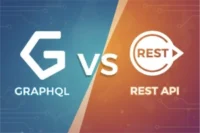WooCommerce vs Shopify: Compare Features, Costs & More
Published: 25 Mar 2025
Starting an online store requires choosing the right platform. WooCommerce and Shopify are two of the most popular eCommerce platforms. While both allow you to sell products online, they have significant differences. WooCommerce is a self-hosted solution that provides flexibility, while Shopify is a fully hosted platform that simplifies the setup process.
Understanding their key differences will help you choose the best option for your business.
Quick Comparison Table: WooCommerce vs Shopify
Here’s a quick comparison table for WooCommerce vs Shopify:
| Feature | WooCommerce | Shopify |
| Ease of Use | Requires technical setup | User-friendly, no coding needed |
| Customization | Highly flexible with plugins | Limited customization with built-in tools |
| Pricing | Free to use, but hosting & add-ons cost extra | Monthly subscription with built-in hosting |
| Payment Fees | No extra transaction fees | Fees for third-party gateways (unless using Shopify Payments) |
| Security & Hosting | Depends on the hosting provider | Fully hosted with built-in security |
| SEO Features | Advanced SEO tools via WordPress plugins | Built-in SEO with limited flexibility |
| Best For | Users needing full control & customization | Users who want an easy, managed solution |
Shopify vs WooCommerce: Key Comparison
Let’s explore the differences between WooCommerce and Shopify, including pricing, customization, and payment options, to choose the best platform for your business.
1. Ease of Use
WooCommerce and Shopify differ in how easy they are to use.
WooCommerce:
- Requires some technical knowledge since it runs on WordPress.
- Needs manual setup, including hosting and domain registration.
- Offers full control but has a learning curve for beginners.
- Customization requires plugins and manual configurations.
- Best suited for those familiar with WordPress.
Shopify:
- A fully hosted platform that provides a user-friendly interface.
- Drag-and-drop functionality makes it easier for beginners.
- Requires no technical expertise to start selling online.
- Includes built-in tools for product and order management.
- Ideal for those who want a hassle-free experience.
2. Customization and Flexibility
Customization options vary greatly between WooCommerce and Shopify.
WooCommerce:
- Open-source platform, allowing full customization.
- Offers thousands of free and paid plugins to extend functionality.
- Allows complete code modification for advanced users.
- Enables users to customize every aspect of their store.
- Requires more effort to set up but provides unlimited flexibility.
Shopify:
- Provides customization through its app store and themes.
- Allows theme customization but has some limitations.
- Uses Shopify’s Liquid language for advanced modifications.
- Easier to customize but lacks the depth of WooCommerce.
- Ideal for users who prefer ready-made solutions.
3. Pricing and Cost
Cost structures differ significantly between WooCommerce and Shopify.
WooCommerce:
- Free to install but requires hosting, domain, and premium plugins.
- Costs depend on your hosting provider and extra features.
- No mandatory monthly fees, making it budget-friendly.
- Transaction fees depend on the selected payment gateway.
- Suitable for users who prefer flexible pricing options.
Shopify:
- Comes with a monthly subscription starting at $29.
- Includes hosting, security, and support in the subscription.
- Additional costs for premium themes and third-party apps.
- Transaction fees apply for non-Shopify payment gateways.
- Best for users who want predictable monthly expenses.
4. Payment Options and Transaction Fees
Each platform offers different payment methods and fee structures.
WooCommerce:
- Supports multiple payment gateways like PayPal, Stripe, and Square.
- No extra transaction fees apart from what payment processors charge.
- Full control over payment processing options.
- Ability to add custom payment methods.
- No restrictions on third-party integrations.
Shopify:
- Offers Shopify Payments with zero transaction fees.
- Charges additional fees for third-party payment gateways (2% for the basic plan).
- Supports a wide range of payment methods.
- Automatic fraud analysis for secure transactions.
- Easier setup compared to WooCommerce.
5. Security and Hosting
Security and hosting vary between these two platforms.
WooCommerce:
- Security depends on the hosting provider.
- Users must manage updates and install security plugins.
- SSL certification and backups depend on the hosting plan.
- More responsibility for security maintenance.
- Hosting flexibility allows users to choose their provider.
Shopify:
- Comes with built-in security features, including SSL certification.
- Handles automatic updates and security patches.
- Includes reliable hosting with no need for extra maintenance.
- DDoS protection and PCI compliance for payment security.
- Best for those who prefer a hands-off approach.
6. SEO and Marketing Features
SEO and marketing capabilities impact online store visibility.
WooCommerce:
- Built on WordPress, which offers strong SEO capabilities.
- Allows full control over meta descriptions, URLs, and alt text.
- Compatible with powerful SEO plugins like Yoast SEO.
- Supports custom blog and content marketing strategies.
- Ideal for businesses relying heavily on organic traffic.
Shopify:
- Provides built-in SEO features but is slightly limited.
- Offers marketing tools like email campaigns and social media integrations.
- Supports third-party SEO apps, but they may have extra costs.
- Automatic sitemap and structured data for better indexing.
- Suitable for businesses using paid marketing strategies.
Which is Better: WooCommerce or Shopify?
The choice between WooCommerce and Shopify depends on your needs. If you want full control, customization, and flexibility, WooCommerce is better. However, if you prefer ease of use, built-in hosting, and a hassle-free setup, Shopify is the best option.
For beginners and small businesses, Shopify is ideal due to its user-friendly interface and all-in-one solution. WooCommerce suits those who want full ownership of their store, need advanced customization, and are comfortable managing hosting and security.
So, WooCommerce is better for flexibility, while Shopify is better for simplicity and scalability. Your decision should be based on your technical skills, budget, and business goals.
Conclusion
WooCommerce is ideal for those who want full control over customization and already use WordPress. Shopify is better for users who want an easy-to-use, all-in-one solution.
WooCommerce is great for businesses that prefer flexibility and lower initial costs, while Shopify is best for those who prioritize ease of use and scalability. Your choice depends on your technical skills, budget, and business needs.
FAQs about Woocommerce and Shopify
Here are some of the most FAQs related to Woocommerce and Shopify:
WooCommerce itself is free, but costs vary based on hosting, plugins, and themes. Shopify has fixed pricing but includes hosting and support.
Yes, migration tools can help transfer products, customers, and data, but some customization may need manual adjustments.
WooCommerce offers better SEO control as it runs on WordPress, while Shopify provides basic SEO features with limited customization.
Yes, Shopify charges fees for third-party payment gateways unless you use Shopify Payments.
Shopify is easier to use as it provides a complete solution with minimal setup, whereas WooCommerce requires some technical knowledge.
No, WooCommerce is a plugin specifically designed for WordPress and cannot function without it.
WooCommerce offers more flexibility in customization, while Shopify provides high-quality, professional themes that are easier to set up.
Yes, both WooCommerce and Shopify allow selling digital products like ebooks, courses, and software downloads.
Basic knowledge helps, but many plugins simplify tasks. Advanced customization may require coding experience.
Shopify is better for large businesses due to its built-in scalability and customer support, while WooCommerce offers flexibility for custom solutions.

- Be Respectful
- Stay Relevant
- Stay Positive
- True Feedback
- Encourage Discussion
- Avoid Spamming
- No Fake News
- Don't Copy-Paste
- No Personal Attacks

- Be Respectful
- Stay Relevant
- Stay Positive
- True Feedback
- Encourage Discussion
- Avoid Spamming
- No Fake News
- Don't Copy-Paste
- No Personal Attacks





